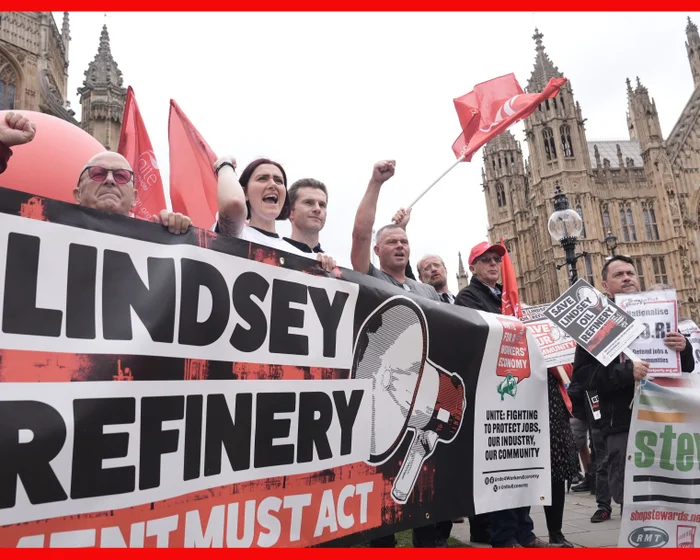trending
neon
Cirque du Soleil offers summer ticket deals
dining out
Celebs ditch the Strip for iconic Henderson restaurant
july 
trending
neon
Cirque du Soleil offers summer ticket deals
dining out
Celebs ditch the Strip for iconic Henderson restaurant
july 

Recent shifts in U.S. economic policy are set to influence the investment landscape and innovation in various sectors. This article explores the potential implications of these changes




The U.S. economy is undergoing significant transformations as policymakers adjust economic strategies to address both long-term and short-term challenges. Recent changes in U.S. economic policy have far-reaching implications for investors, businesses, and innovators across various sectors. These shifts aim to foster sustainable economic growth, encourage investment, and spur innovation, but their impacts will vary depending on the specific measures taken and how they are implemented.
In this article, we examine the key U.S. economic policy changes, their potential impacts on investment and innovation, and how businesses and investors can adapt to these evolving conditions.
Tax reform has been a central focus of the U.S. government in recent years. The shift toward lower corporate tax rates, alongside changes to individual tax policies, is designed to stimulate business investment, encourage job creation, and make the U.S. more competitive globally. Lower taxes on businesses can potentially lead to increased capital spending, innovation in research and development (R&D), and an overall expansion of the economy.
Additionally, changes to tax policies affecting individuals, such as adjustments to income taxes and investment capital gains taxes, could influence consumer spending patterns and investment behaviors. Businesses may also benefit from tax incentives and credits that encourage investment in renewable energy, technology, and infrastructure.
The U.S. government has been placing a significant emphasis on infrastructure investment as a way to stimulate economic growth. The Infrastructure Investment and Jobs Act, passed in 2021, allocated billions of dollars toward modernizing the country's infrastructure, including roads, bridges, public transit, and energy systems.
This increased investment in infrastructure is expected to create jobs, improve efficiency, and drive innovation in sectors such as construction, transportation, and green energy. Furthermore, public-private partnerships may create opportunities for private investment in infrastructure projects, driving innovation and economic growth in the process.
Changes in financial regulations, including adjustments to banking and lending rules, are likely to have a profound impact on investment patterns in the U.S. economy. These reforms are intended to reduce the regulatory burden on businesses and encourage investment in both traditional and emerging industries.
For investors, deregulation in certain sectors could open up new investment opportunities in technology, clean energy, and healthcare. However, the trade-off may be increased market volatility and greater risk exposure, particularly in speculative industries like cryptocurrencies and fintech.
Trade policies, including tariff adjustments and negotiations on free trade agreements, are also central to economic shifts in the U.S. Changes in trade relations with key global partners, such as China, the European Union, and developing markets, will impact industries ranging from manufacturing to tech.
U.S. companies that rely heavily on global supply chains and international markets may benefit from more favorable trade agreements and fewer restrictions. At the same time, U.S. manufacturers, particularly in sectors like steel, automotive, and agriculture, may face new challenges due to changes in tariffs and trade barriers.
One of the primary sectors likely to benefit from changes in U.S. economic policy is technology. Policies aimed at fostering innovation and entrepreneurship, such as tax incentives for R&D, could fuel advancements in artificial intelligence (AI), renewable energy, biotechnology, and other cutting-edge industries.
In particular, the government’s focus on green energy and sustainable infrastructure is likely to drive increased investment in clean technologies. Companies working on carbon capture, electric vehicles, and renewable energy solutions could see a significant uptick in both public and private funding.
With deregulation and more favorable tax policies, private equity and venture capital investments may experience increased growth. These changes make it easier for investors to fund startups, particularly in high-growth sectors like tech, healthcare, and clean energy. Lower taxes on capital gains may also encourage individual investors to increase their exposure to venture capital opportunities, further boosting innovation in these sectors.
As more entrepreneurs and startups emerge, the competition for capital may lead to innovative breakthroughs in everything from app development to advanced manufacturing techniques. The influx of investment may help turn disruptive ideas into the next generation of market leaders.
U.S. policy changes will also have global implications, especially as businesses and investors look to diversify their portfolios across emerging markets. Policies that promote global trade and reduce tariffs may offer new opportunities for American companies to invest in growing markets across Asia, Africa, and Latin America.
Increased access to emerging markets presents significant opportunities for both equity and fixed-income investors. Additionally, investors will be keeping an eye on the geopolitical landscape, as shifts in trade agreements or tariffs could influence global investment flows.
With rising concerns over climate change and sustainability, U.S. policies are increasingly focused on innovation in green technologies. Financial incentives for clean energy development, coupled with infrastructure investments, will likely lead to accelerated innovation in solar, wind, and energy storage technologies.
Companies in the renewable energy space could see a surge in demand for their products and services, creating new opportunities for both investors and innovators. Additionally, innovations in energy efficiency, electric vehicles, and sustainable manufacturing methods could redefine industries and supply chains.
Economic policy changes aimed at improving healthcare access and innovation will likely lead to breakthroughs in biotechnology and healthcare. Federal investment in medical research and development could lead to new treatments and therapies, particularly in areas such as cancer research, gene therapy, and personalized medicine.
With a focus on improving healthcare infrastructure and expanding access to medical services, private sector companies will be incentivized to invest in innovative healthcare solutions. This, in turn, could lead to improved outcomes for patients and new opportunities for investors in healthcare technology.
U.S. economic policies that encourage technological innovation could accelerate the digital transformation of traditional industries, such as manufacturing, agriculture, and retail. Automation, robotics, and AI-driven solutions are already beginning to revolutionize these industries, and favorable policies could speed up the adoption of these technologies.
Investors who are able to identify disruptive companies in these sectors may stand to gain significantly as industries evolve. Likewise, businesses that embrace digital innovation may find themselves at the forefront of their industries, with improved efficiency and the ability to scale quickly.
Recent shifts in U.S. economic policy are set to influence the investment landscape and innovation in various sectors. This article explores the potential implications of these changes
the latest

Job Cuts at Lincolnshire Refinery, UK Growth Revised Upward
Around 125 jobs will be lost at the Lincolnshire (Lindsey) oil refinery after its parent company entered insolvency, even as revised GDP data shows the UK economy grew faster under Labour than previously estimated

Reeves Proposes Youth Mobility Deal for UK and EU Under-30s
UK Chancellor Rachel Reeves has proposed a new youth mobility scheme that would allow young Europeans aged ~18-30 to live and work in the UK under a post-Brexit arrangement, while emphasising limits on duration and net migration.

Biden Approves Ukraine Use of Long-Range Missiles Into Russia
President Biden has authorized Ukraine to use long-range missiles to target locations inside Russia, marking a significant escalation in the ongoing conflict.

Labour Byelection Win Marks SNP Decline, Says Anas Sarwar
Scottish Labour leader Anas Sarwar said the party’s byelection victory shows the SNP’s dominance is fading, signaling a major shift in Scottish politics.

UAE Employees: Are Salaries Deductible During Annual Leave?
A common question in the UAE workplace is whether employers can deduct salaries while employees are on annual leave. Experts explain labor law provisions and best practices.

Sharjah Self-Defense Club Claims No-Gi Title at UAE Jiu-Jitsu
Sharjah Self-Defense Club emerged victorious in the No-Gi category at the UAE Jiu-Jitsu Championship, showcasing skill, discipline, and teamwork.

UAE Schools Announce One-Month Winter Break
UAE schools will have a one-month winter break from December 8, 2025, to January 4, 2026, giving students and staff an extended holiday period.

Sharjah Extradites Uzbek and Nepalese Nationals for Fraud
Sharjah authorities have extradited two foreign nationals—one Uzbek and one Nepalese—wanted under Interpol Red Notices to face fraud charges.

US Envoy Confident of Breakthrough on Gaza Crisis
A senior US envoy expressed optimism about achieving a breakthrough in Gaza peace talks, signaling renewed international efforts to end the humanitarian crisis.